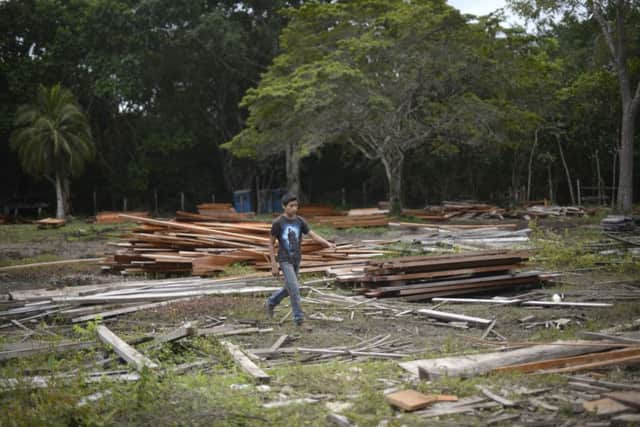Scots firm uses satellite technology to catch illegal logging gangs


Now a space science company based in Musselburgh, East Lothian, has been tasked with a solution – high definition images taken from satellites, which can detect changes in activity in the areas surveyed.
Astrosat uses data from satellite radar images monitored with software installed in mobile phones or tablets, to find out if new paths have been constructed through the Guatemalan rainforests or to detect any machinery brought into the area.
Advertisement
Hide AdAdvertisement
Hide AdSteve Lee, chief executive of Astrosat, won the contract for the project, part of the UK Space Agency’s £152 million International Partnership Programme, earlier this year.
He said: “We are tracking the trees so that no illegal logs are entering the supply chain. We are using radar technology to be able to find and prove what is going on in the forest.”
The technology enables experts to pinpoint where any illegal logging activity is taking place.
Lee said: “Instead of it taking weeks for the authorities to realise what is happening in the jungle, we can tell the cops within days of a change taking place – and the cops can take action.”
Advertisement
Hide AdAdvertisement
Hide AdThe technology is also able to prevent illegal logs from being sold to companies who, until now, have found it difficult to identify illegally-sourced wood.
He added: “Illegal logging costs the Guatemalan economy hundreds of millions of pounds, so aside from the environmental impact, what we do could have a major effect.”
Forests cover one third of Guatemala. The annual rate of deforestation was one per cent for the period 2010 to 2015, according to the UN.
The technology will also allow the government to monitor work done by local farmers, who are entitled to a financial incentive if they follow correct practices.
Thomas Carter, British ambassador to Guatemala, said: “Guatemala is blessed with large areas of pristine forest and we want to support Guatemala in its efforts to conserve them.”